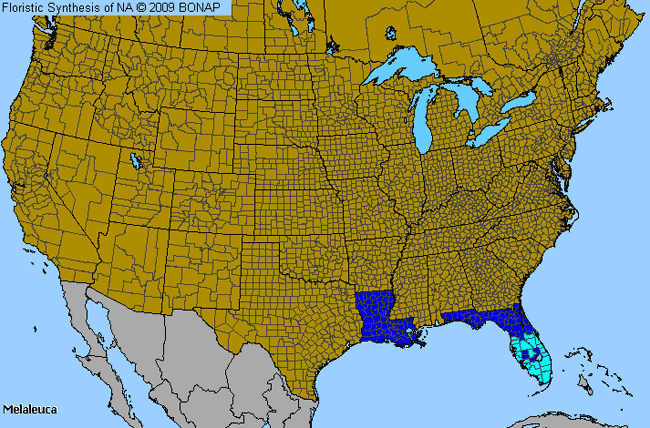Punktree (Melaleuca)

Punktree Genus Details

Melaleuca quinquenervia, also called punktree or cajeput, is native to Australia. This plant has white bottle-brush flowers that have a strong odor, similar to potatoes, which may cause an allergic response in odor-sensitive people. The pollen has been reported to be a significant allergen, but has been reported more recently to have secondary allergenicity. Plants nearby with inconspicuous flowers may shed pollen at the same time and may have caused the allergic reactions. A controlled study in Tampa, Florida concluded this plant has minor allergenic importance due to sparce pollen shed and negative odor challenges.
Punktree Allergy Info

Melaleuca has been known to cause both pollinosis and odor sensitivity. Because the pollen is only secondarily wind pollinated, exposure is limited.
Punktree Pollen Description

Grains in this family are suboblate; the amb trianular and usually with convex sides, angulaperturate and parasyncolpate with a triangular apocolpium, 3-4 colporate. The colpi are narrow, long and fused and the lalongate. The sexine is smooth at the apertures and the intine is thicker beneath the apertures forming onci.
The grains measure 20-24 micrometers.
Species in This Genus

Allergenicity Legend:
 Mild Allergen |
Mild Allergen |
 Moderate Allergen |
Moderate Allergen |
 Severe Allergen |
Severe Allergen |
 Allergy Test Available
Allergy Test Available
Punktree (Melaleuca) is a genus of the MYRTACEAE family.
This genus includes the following allergenic species:
This genus includes the following allergenic species:











